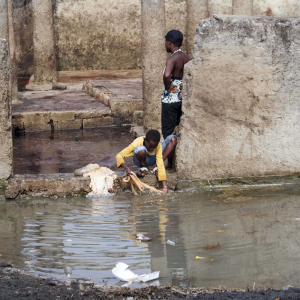Impoverished Haiti could be subject to the rapid spread of the Zika virus, warn American charities and the US Centre for Disease Control.
"The lack of education, information, the number of people living [in slums] and the degree of stagnant water all over the place is the ideal place for the mosquito to breed, increasing the likelihood of the transmission of Zika," said Dianne Jean-Francois, a physician for the Catholic Medical Mission, who have staff working in southern Haiti.
She said the Catholic Medical Mission Board is promoting local fumigation efforts to reduce the mosquito population but that preventing the spread of the disease will "be very difficult".
A clear increase and acceleration in the number of cases of Zika has been reported by Haiti's Ministry of Public Health. In January, the number of confirmed cases of the virus climbed from 96 to 329 in less than three weeks.
In February, a senior US health official, Anne Schuchat, principal deputy director of the US Centre for Disease Control expressed her "extreme concern" about the potential of the Zika virus to spread throughout Haiti and stated that the United States is helping Haiti to prepare.
The World Health Organisation, who have declared the spread of the Zika virus a "Public Health Emergency of International Concern", notes that most people infected with the Zika virus do not get sick or develop symptoms, and that in rural societies such as Haiti the problem is likely underreported or misdiagnosed.
The Haitian Health Foundation, who have 180 staff working in rural health clinics and healthcare outreach efforts across the Haitian countryside, have said that one or two cases of possible Zika-related microcephaly have been identified but that it is too early to know if cases of birth defects associated with Zika will start to emerge.
"If babies start to be born with defects there would be panic," Marilyn Lowney, executive director of the non-denominational health agency, told the Catholic News Service.
"Everybody is mobilised," she added, "we [have] created a brochure with information [about Zika] and we can refer people to maternal waiting home so if someone is having a problem pregnancy our health agents can send those mothers to a place for high risk pregnancy."
There is no vaccine to prevent the Zika virus.
Haiti, still struggling to recover from the effects of the 7.0 magnitude earthquake which struck in January 2010 killing more than 220,000 people and rendering 1.5 million homeless, has been suffering from a cholera epidemic since late 2010.
The disease is said to have affected 770,000 people – almost eight per cent of the population – and killed more than 9,200.
Survivors of the disease are reported to be making headway in a legal and public relations campaign to gain compensation from the United Nations, who are widely believed to have brought cholera to Haiti.
Haiti is the poorest country in the Western Hemisphere.
KEEP UP TO DATE ON TWITTER AND FACEBOOK...
Follow all the latest news and events from the Catholic world via The Tablet's Twitter feed @the_tablet
Or you can join in the debate at our community page on Facebook




 Loading ...
Loading ...